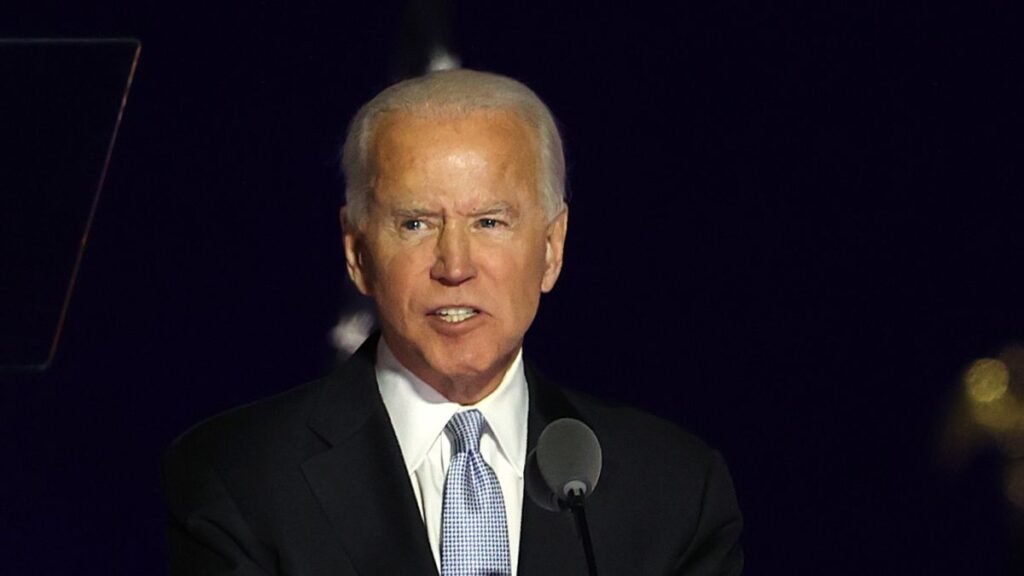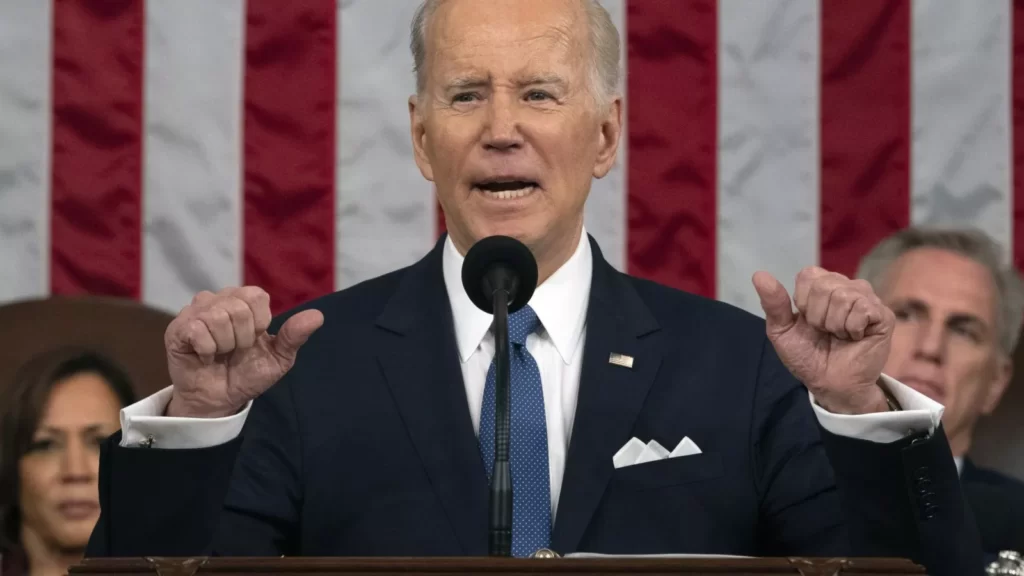President Joe Biden addressed the public for the first time regarding the ‘secret’ hospitalization of Secretary of Defense Lloyd Austin. The President’s comments shed light on the previously undisclosed health concerns surrounding one of his key Cabinet members, raising questions about transparency and the delicate balance between personal privacy and public disclosure.
President Biden, during a press briefing, acknowledged that Secretary Austin had undergone a medical procedure but reassured the public that the Secretary is in good health and actively engaged in his duties. The President’s decision to share this information comes after weeks of speculation and concern over Austin’s unexplained absence from public engagements.
Biden’s remarks sought to dispel any notions of secrecy or lack of transparency, emphasizing that the decision to keep Austin’s hospitalization private was made out of respect for his privacy and to avoid unnecessary speculation. The President acknowledged the public’s right to know about the health of key government officials while balancing the need to respect their personal space.
Secretary Austin, a crucial figure in the Biden administration, has been at the forefront of key defense and security initiatives. The undisclosed hospitalization had fueled rumors and conspiracy theories, prompting the President to address the situation directly. Biden stressed the importance of prioritizing the well-being of his Cabinet members while maintaining a commitment to openness.
More About It
The nature of Austin’s medical procedure was not disclosed in detail, further emphasizing the administration’s focus on respecting personal privacy. President Biden affirmed that Secretary Austin is expected to return to his duties soon, highlighting the successful outcome of the medical intervention.

The revelation of Austin’s hospitalization has sparked discussions about the delicate balance between an individual’s right to privacy and the public’s need for transparency, especially when it comes to high-ranking government officials. The incident raises broader questions about the extent to which the personal lives of public figures should be subject to public scrutiny.
While the Biden administration’s commitment to transparency has been a cornerstone of its messaging, the handling of Austin’s hospitalization underscores the challenges of navigating the fine line between privacy and public disclosure. The incident serves as a reminder of the inherent tension between protecting the personal lives of public officials and fulfilling the public’s right to be informed.
Critics argue that the delay in disclosing Austin’s hospitalization fuels mistrust and undermines the administration’s commitment to transparency. They contend that timely communication about the health status of key officials is vital for maintaining public trust and ensuring a smooth functioning of government affairs.
Conversely, supporters of the administration point out the importance of respecting the privacy of individuals, including high-ranking officials. They argue that the decision to keep Austin’s hospitalization private until he was on the path to recovery was a responsible choice, preventing unnecessary speculation and allowing the Secretary to focus on his health without added external pressure.

As the Biden administration grapples with the aftermath of this incident, it serves as a case study in the complexities of managing information in an era of heightened public interest and scrutiny. The incident has prompted discussions about establishing clearer guidelines for disclosing the health status of key government officials, striking a balance between transparency and the right to privacy.
The unexpected disclosure of Secretary Austin’s hospitalization has also ignited conversations about the potential impact on national security. As the head of the Department of Defense, Secretary Austin oversees critical defense initiatives and plays a pivotal role in shaping the nation’s security policies. The temporary absence of such a key figure raised concerns about the continuity and effectiveness of ongoing defense operations.
President Biden addressed these concerns during his comments, assuring the public that the Department of Defense had been operating seamlessly in Austin’s absence. He emphasized the strength of the leadership team within the department, highlighting the collaborative efforts of top officials to ensure the nation’s security remains uncompromised.
The incident prompts reflections on the balance between a leader’s duty to serve and their personal well-being. While public servants have a responsibility to fulfill their roles, they are not immune to health challenges. The discussion surrounding Austin’s health brings to light the need for comprehensive policies that address the well-being of government officials while maintaining a robust system of checks and balances.
The episode also underscores the evolving nature of communication in the digital age. The immediacy of information dissemination, coupled with the public’s hunger for real-time updates, places increased pressure on governments to navigate the delicate dance between transparency and personal privacy. Striking the right balance in this era of instant news and social media scrutiny is becoming an ever more complex challenge for leaders across the globe.
Looking forward, the Biden administration faces the task of reassessing its communication strategies concerning the health of top officials. The incident may serve as a catalyst for a broader review of existing protocols, leading to more defined guidelines on when and how to disclose health-related information. This, in turn, could contribute to a more transparent and accountable government apparatus.
The disclosure of Secretary Austin’s hospitalization not only sheds light on the complexities of transparency but also initiates a wider conversation about the well-being of public officials and the challenges of leadership in an era of instant information. As the Biden administration navigates the aftermath of this incident, it may pave the way for a more nuanced approach to balancing the public’s right to know with the individual’s right to privacy, ultimately shaping the future of communication strategies within government institutions.



